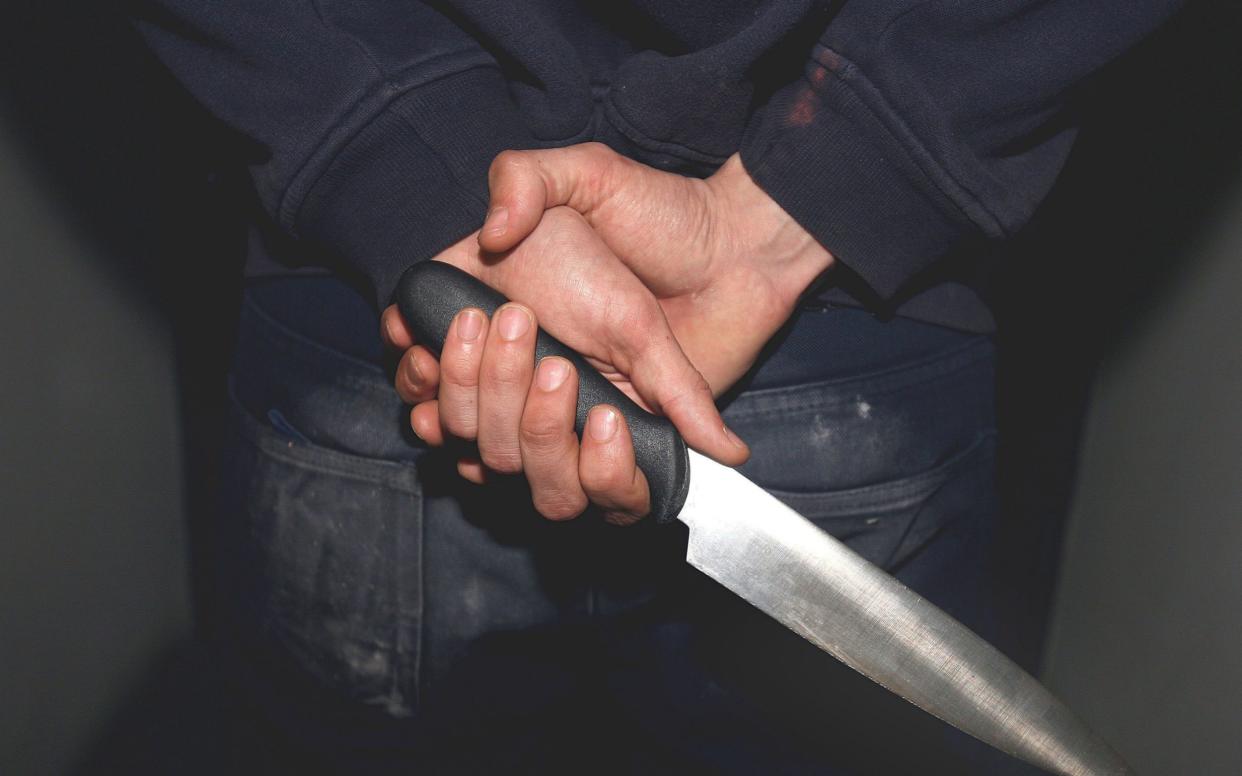Knife offences hit ten-year high with 60 recorded every day in the past year

Knife offences have hit a ten-year high and are running at the equivalent of 60 a day, according to Ministry of Justice (MoJ) figures.
The number of offences for knife and offensive weapons rose by three per cent to 22,286, the highest number since the year ending September 2009 when there were 26,364.
The increase was driven by knife possession offences which hit 14,135, the highest number since figures were first compiled in 2009.
The number of weapons possession offenders jailed rose from 8,050 the previous year to 8,384 in the year ending September 2019, according to the MoJ figures.
However, more than a third of repeat knife offenders also escaped an immediate jail sentence despite laws requiring courts to impose a custodial sentence for anyone convicted of a second or subsequent offence involving possession of a knife or offensive weapon.
According to the MoJ data, 64 per cent of repeat offenders received an immediate prison sentence and a further 18 per cent received a suspended sentence. This is up from 48 per cent who received an immediate jail term in the year to September 2014.
Overall, almost four in ten (38 per cent) of knife and offensive weapon offences resulted in an immediate custodial sentence compared with 23 per cent in the year ending September 2009.
The average length of the custodial sentences received also increased over the same period, from 6.0 months to 8.1 months.
For 71 per cent of offenders it was their first knife possession offence, the lowest level since the year ending September 2009 when it was 80 per cent.
However, while the proportion of first time offenders for this offence type has fallen there has been an increase in the number of offenders dealt with for their first knife and offensive weapons offence in each of the last six years.
It rose from 11,377 occasions in the year ending September 2013 to 14,226 occasions in the year ending September 2019, a rise of 25 per cent.
It comes just days after Boris Johnson ordered all Whitehall departments to take action to tackle crime as he declared that he wanted to "roll up" county lines drugs gangs.
At Tuesday's Cabinet meeting, he told ministers that "every department in Whitehall should consider itself a criminal justice department" as part of a drive to tackle the "complex causes of crime.”
That would involve long-term reforms to improve health, social care, youth services and education, Downing Street said.
Earlier he had warned that county lines gangs which run drugs from cities into towns and villages across Britain were "killing young kids" and reducing the quality of life for people across the country.
"We are putting 20,000 more police on the streets,” Mr Johnson said in his first major broadcast interview since the New Year. "I want to see crime come down. I want to see the county lines drugs gangs wound up, rolled up.
"They are reducing the quality of life for people across our country. They are killing young kids. I want to see that thing totally wound up."
At the Cabinet meeting, Mr Johnson, Home Secretary Priti Patel and Justice Secretary Robert Buckland led the discussion on tackling crime.
The Prime Minister's official spokesman said Mr Johnson told the Cabinet the Government "was elected on a mandate of being tough on crime, delivering 20,000 more police officers and ensuring that serious offenders spend longer behind bars.”
"Cabinet was told that every department in Whitehall should consider itself a criminal justice department and play its full part in reducing crime and delivering for the public," the spokesman said.
"The Prime Minister said we must deliver long-term reforms in areas such as health, children's social care, youth services, education and employment that are needed to tackle effectively the complex causes of crime."

 Yahoo News
Yahoo News 
